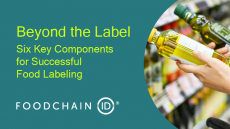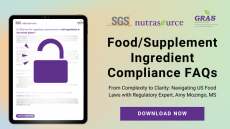PCA files for bankruptcy as recall expands to Texas plant
The company estimated its assets to be worth $1m to $10m and its liabilities to be in the same range at the US Bankruptcy Court in the Western District of Virginia on February 12.
On the same day, Texas health officials announced a recall of all products ever manufactured at another PCA processing plant in Plainview, Texas, after they discovered dead rodents, droppings and bird feathers in a crawl gap above a food production area.
The inspection by Texas Department of State Health Services (DSHS) also found that the plant’s air handling system was not completely sealed, allowing debris from the infested crawl gap to fall onto exposed food products below.
DSHS said that state law gives it the authority to issue such recalls when conditions pose “an immediate and serious threat to human life or health.”
Increased penalties
Jean Halloran, director of food policy initiatives at Consumers Union, called for stronger penalties for companies that ship contaminated products, and said that PCA’s bankruptcy filing would protect the company from potential lawsuits filed by consumers.
She said: “It is unacceptable for corporations to put consumers' health at risk, and then simply declare bankruptcy and go out of business when they get caught. We must have an FDA that can oversee food processors so that unscrupulous behavior can be detected, prevented and deterred.”
No license
The PCA’s Texas plant had not been inspected since it first opened in March 2005. This was because the company had failed to apply for a Texas license, meaning that state authorities did not know it existed, according to the DSHS. The plant, which made dry roasted peanuts, granulated peanuts and peanut meal, is one of three plants owned by the company, which is based in Lynchburg, Virginia.
The Texas facility had been voluntarily closed last Monday, after tests of sample products found possible salmonella contamination. However, none of these products had been distributed, officials said, and the plant closure was not contingent on salmonella being detected.
The DSHS order stipulated that it cannot be reopened without DSHS approval.
More than 1,900 products have now been recalled in relation to the salmonella outbreak linked to the company’s plant in Blakely, Georgia, making it one of the largest product recalls in history. The outbreak has sickened at least 636 people in 44 states, and may have caused nine deaths.
The company’s president, Stewart Parnell, refused to testify at a Congressional hearing last week.
















